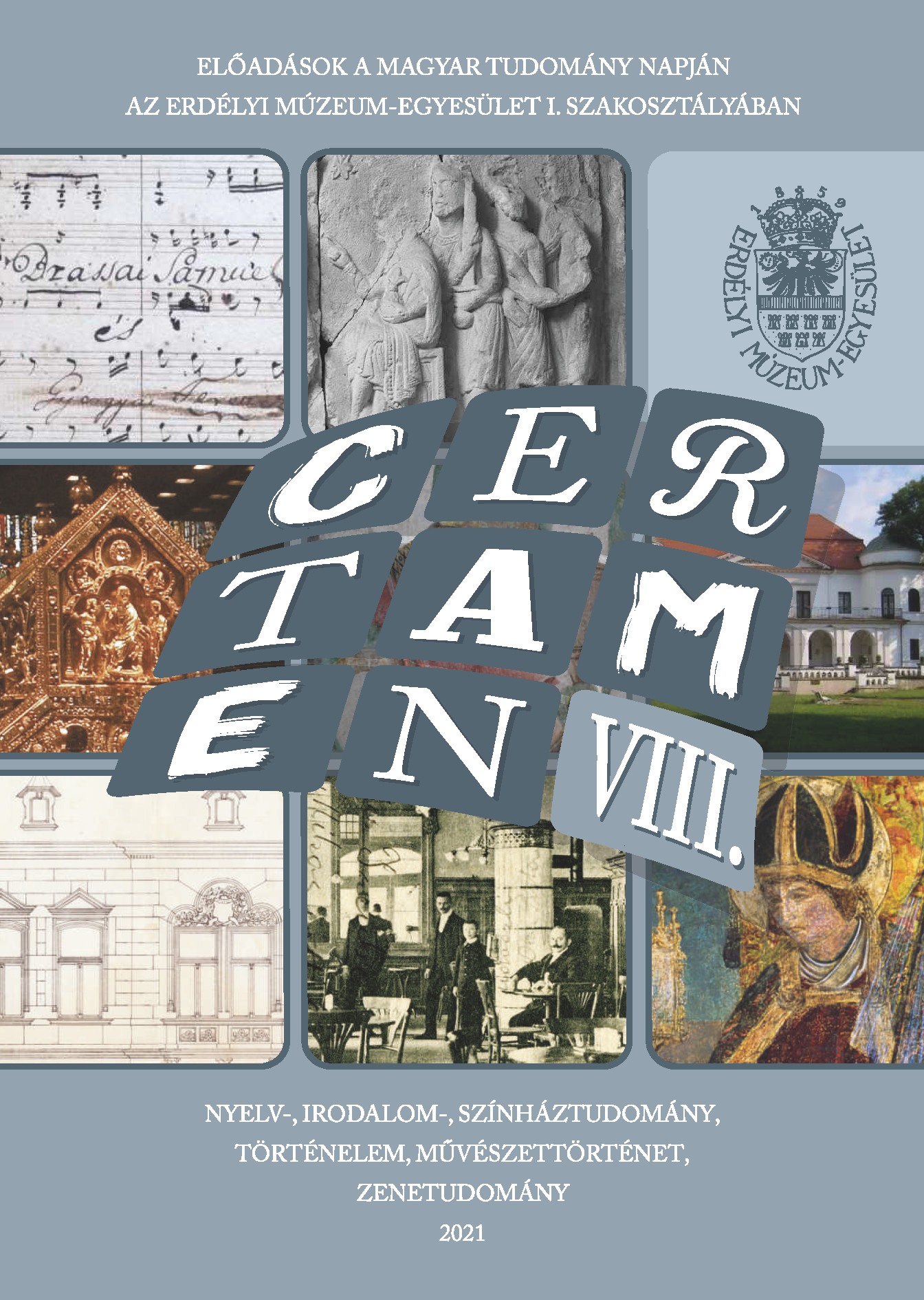Brassai Sámuel és Angi István: életutak és eszmék párbeszéde egy képzeletbeli kolozsvári zeneesztétika-műhelyben
Sámuel Brassai and István Angi: Dialogue of Life Paths and Ideas in an Imaginary Music Aesthetics Workshop in Cluj-Napoca
Author(s): Csilla CsákánySubject(s): Cultural history, Music, Social history
Published by: Erdélyi Múzeum-Egyesület
Keywords: Sámuel Brassai; István Angi; music aesthetics; Cluj-Napoca; workshop;
Summary/Abstract: 19th-century polyhistor, Sámuel Brassai and one of the most defining personalities of contemporary Transylvanian music life, István Angi developed a versatile and multifaceted artistic, scientific and pedagogical work. Their lives and creative careers are connected to Cluj-Napoca and they both played an important role in the development of the musical life of the city. While Brassai worked in real and human fields of science, Angi published and taught his analyses of music aesthetics following the guidelines of art philosophy and modern art theories. They both treated music as their heart’s desire. Among Brassai’s writings, a document discussing his views on music aesthetics occupies an important place, while Angi’s publications are the paradigms of Transylvanian analyses of music aesthetics. The present study places the life paths, thoughts and theories of music aesthetics of these two school-creating personalities in a creative dialogue. They both set up a workshop, involving performers, creators and intellectuals of their age who were interested in the evolution of classical music. While Brassai introduced and promoted the experience of chamber music, Angi introduced the practice of musical aesthetic thinking conceived in the dialogue of the arts. So they are both founders of creative workshops whose basic driving force is the desire to make music or listen to music. Music history happily remembers the musical evenings organized by Sámuel Brassai, and similarly a long line of music educators and performers find memorable the conversations associated with music listening with István Angi. Both events, although different in nature, were characterized by a need of listening to the best quality possible of classical music. And it soon became clear for the participants that the workshop leaders encouraged them to increase their professional knowledge on contemporary music literature, and to disseminate thought-provoking conversations about current artistic ideas.
Journal: Certamen
- Issue Year: 2021
- Issue No: VIII
- Page Range: 359-378
- Page Count: 20
- Language: Hungarian

